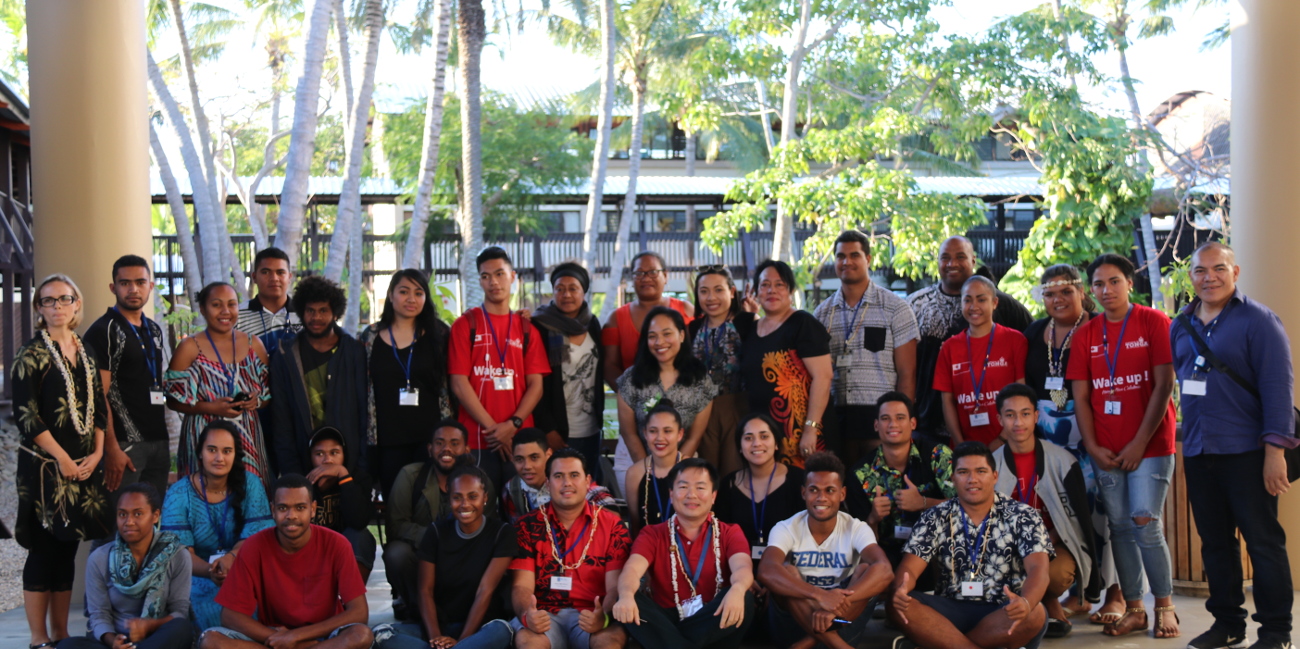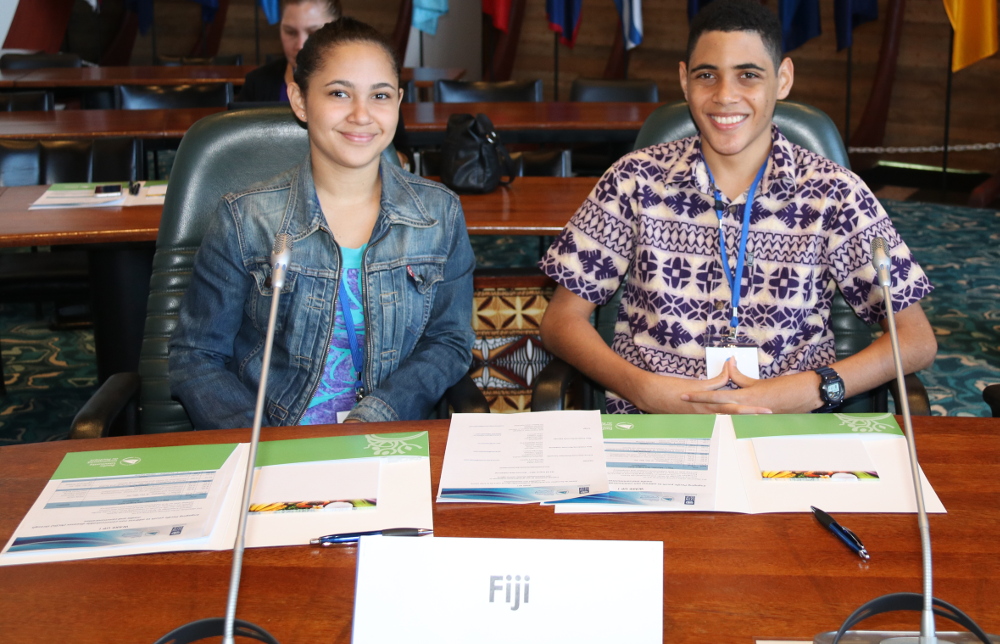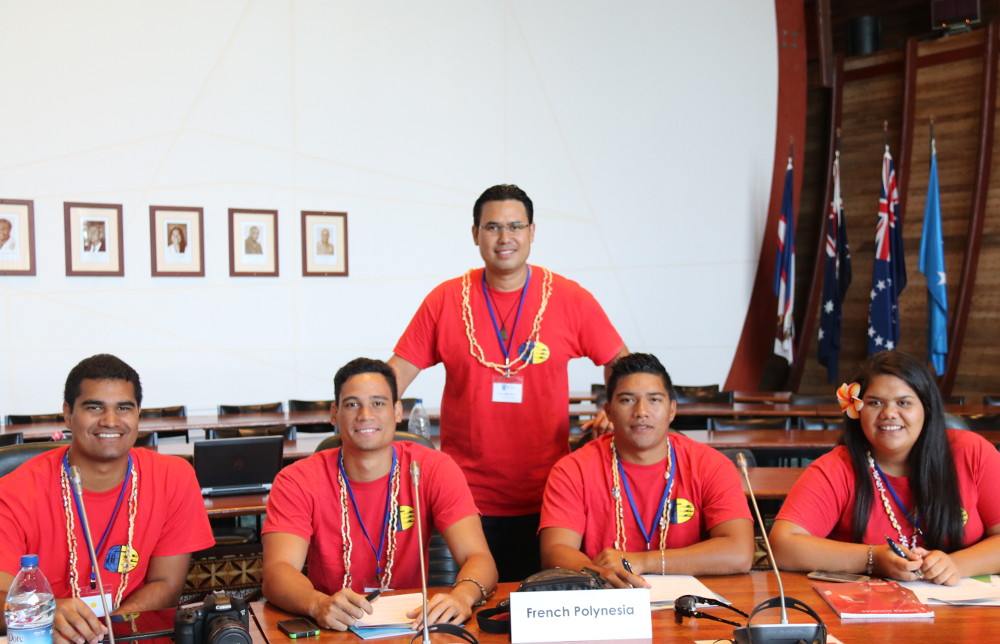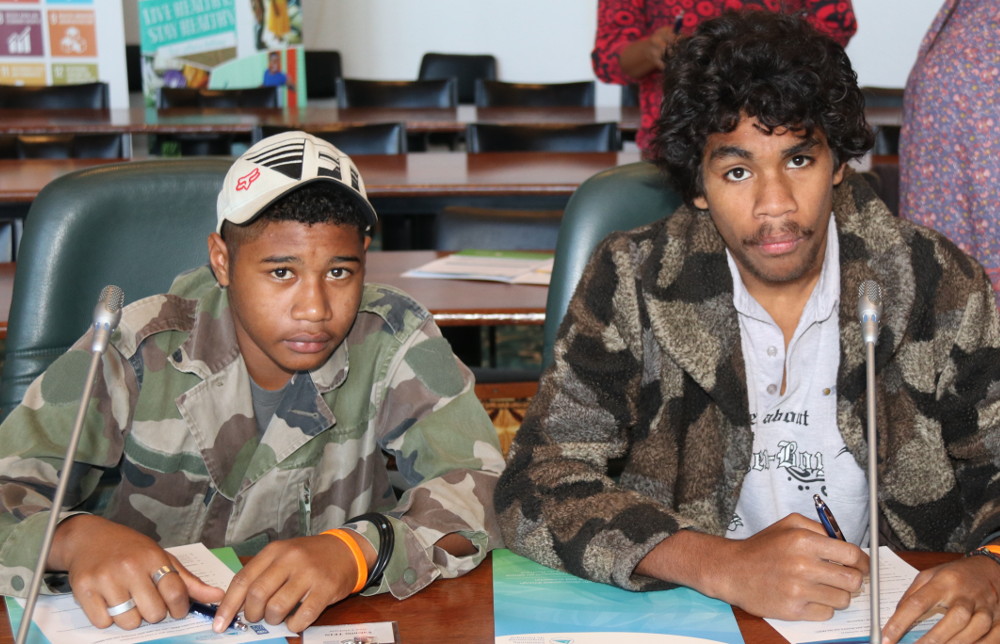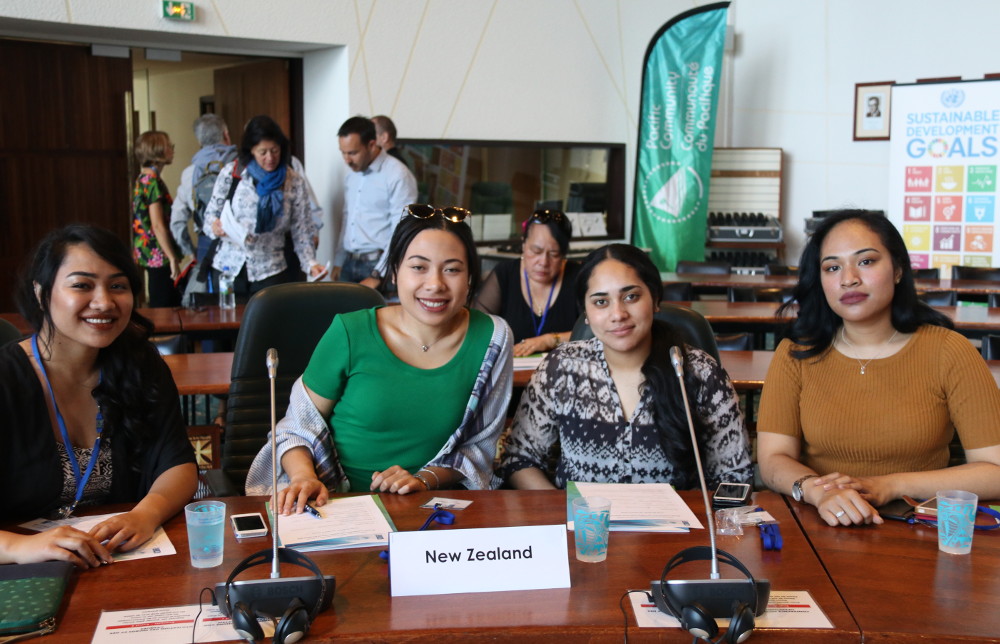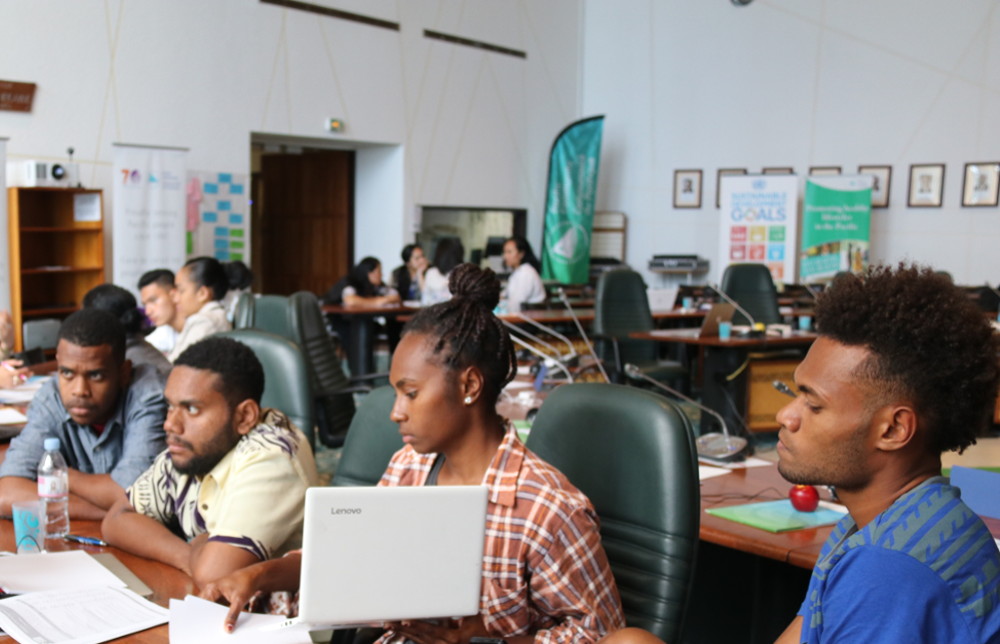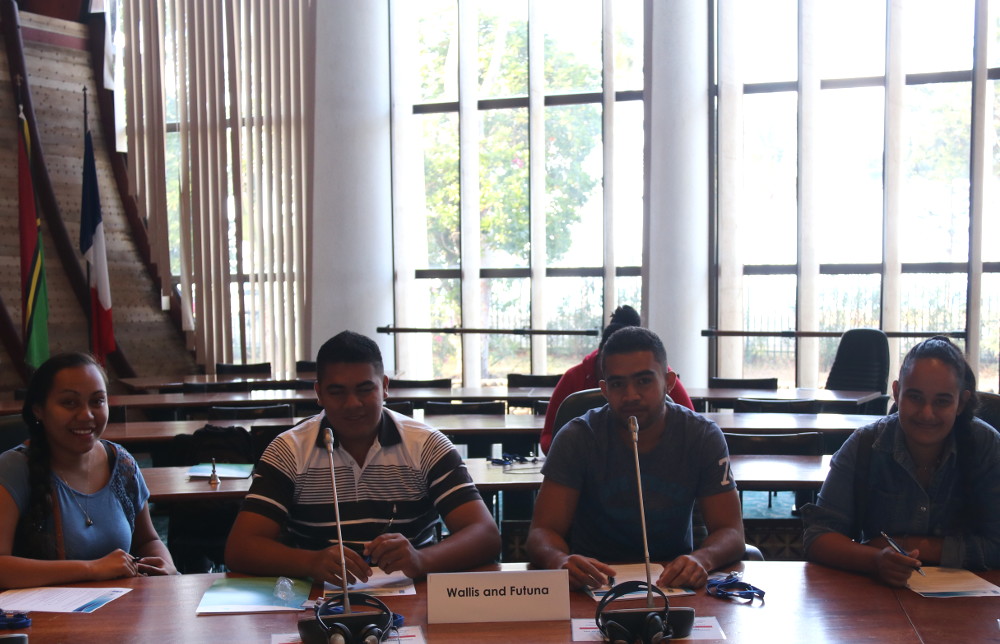Non Communicable Diseases (NCDs) do not receive an appropriate level of attention and have become a ‘silent killer’, as some specialists describe it. On World Health Day 2018, and in partnership with UNDP, SPC is releasing 6 short movies created by youths of the Pacific to reach out to their peers on that question.
The project:
Non-communicable diseases (e.g. obesity, diabetes, cardiovascular disease, cancer) are a major social and economic issue for Pacific island countries and territories. These disorders undermine development as they drain government resources and have serious repercussions on the quality of life for both individuals and their families. Studies have shown that teenagers are widely concerned by the issue and that their behaviour put them at high risk for developing non-communicable diseases (heavy smoking and drinking, unhealthy diet and a lack of exercise).
Yet, few prevention activities carried out in the region directly involve young people. The WAKE UP project was therefore designed to mobilise young (18-25) people in the region on non-communicable diseases. They helped designing more dynamic communication techniques to deal with this health topic.
A call for project proposals was issued in early 2017 to invite youths from seven Pacific Island countries and territories to develop and submit proposals for video projects designed to reach out to their peers about non-communicable diseases and associated risk factors. Seven projects were selected through this competitive procedure and the winners were invited to a training session in Noumea, from 21 to 23 August 2017. Over these three days, 28 youths from Fiji, Tonga, Vanuatu, New Zealand, French Polynesia, New Caledonia and Wallis and Futuna discovered video-making techniques and learned more about non-communicable diseases. At the end of the training session, they did all the pre-production work on their films (storyboards, dialogues, technical specifications, etc.)
Funding was then provided to allow each team of young people to work with production companies in their own countries to film the videos using profession-quality technical resources. Given its success, the project will be renewed in 2018 using graffiti (street art) as the channel of communication.
Flashback on the WAKE UP! workshop:
The project’s videos:
“Do it for the ones who love you!”
A film written by the Fiji team: Kautea and Taniela Tora
A loving and caring relationship between two siblings deteriorates as the brother indulges in unhealthy behavior. He later dies of a stroke. The film by Kautea and Taniela Tora highlights the importance of looking after oneself and encourages individuals to embrace healthy living, if not for themselves, for the ones who love them. The authors postulate that in contemporary Fijian society, individuals are more sensitive to the pain their death may inflict unto their loved ones than their own fate.
” Choose life “
A film written by the French Polysinesian team: Klaus Bruneau, Raihau Tinihau, Temakeu Mara, Maunakea Poheroa and Teddy Huiotu
Following a visit to the doctor, Tama, an overweight young adult, becomes suddenly aware of everything he could have done differently in his youth to be healthier. He then decides to radically change his and his family’s lifestyle. The team of young people from French Polynesia who directed this short film, engage parents on the importance of teaching children healthy behaviours from an early age.
“My story: Edouard, 13”
An animated film written by the New Caledonian team: Paveli Manoletta, Daren Dreuko, Valentin Tein, Ezehil Nadjeou and Glenn Tchiaou
Following an incident that gives the whole family a scare, Edouard, 13, decides to improve his health with the support of his parents. This short anime film made from drawings by young people from the Northern Province of New Caledonia, not only gives life to the original characters, but also harshly criticises moder way of life and its contribution to the increase of health-related problems within families.
“Suka, Tā e lango kei mama’o – Diabets, prevention is better than cure”
A film written by the team New Zealand: Tilisi Mafi Touatai Puloka, Seluvia Patsy Havili, Mele Paea Tonga and Lea Silivia Heilala Ketu’u
Four young female students of Tongan heritage living in New Zealand are mobilising against non-communicable diseases. In their film, they highlight the impact of diabetes, not only on the quality of life of those affected, but also on family members. This moving short film is full of hope and a strong, sensitive call to communities to take better charge of their health.
“N.C.Ds”
A clip from CONFLICTION, team Vanuatu
Written by: Ben Silé, Ethan Hakwa, Jaimeen Kenni, Ludovic Taga, Matthew Hardwick and Silas Taiki
The Ni Vanuatu Hip Hop group ‘Confliction’ takes on NCD risk factors in this upbeat music video. The lyrics and music motivate the youth to be more active, eat healthy local foods, stop smoking and drink less. The video also portrays gender balance and sensitivity. Music is highly appealing to the youth in Vanuatu and is generally considered a great medium to engage with them on sensitive or important issues.
“Seleone”
A film written by the team Wallis & Futuna
Meet Seleone, an elder from Hihifo district on Wallis Island. He is interviewed by Lotana, a nurse, who asks him about traditional ways of life, and how to integrate this knowledge into methods of teaching young people about non-communicable diseases. Through interviews with Seleone, the film shows how modernisation has profoundly changed the Wallisian way of life, with a focus on the abandonment of subsistence farming, hunting and fishing, and the introduction of imported processed foods.
A project led by SPC and UNDP with the support from Pacific Funds (France) and DFAT (Australia).
